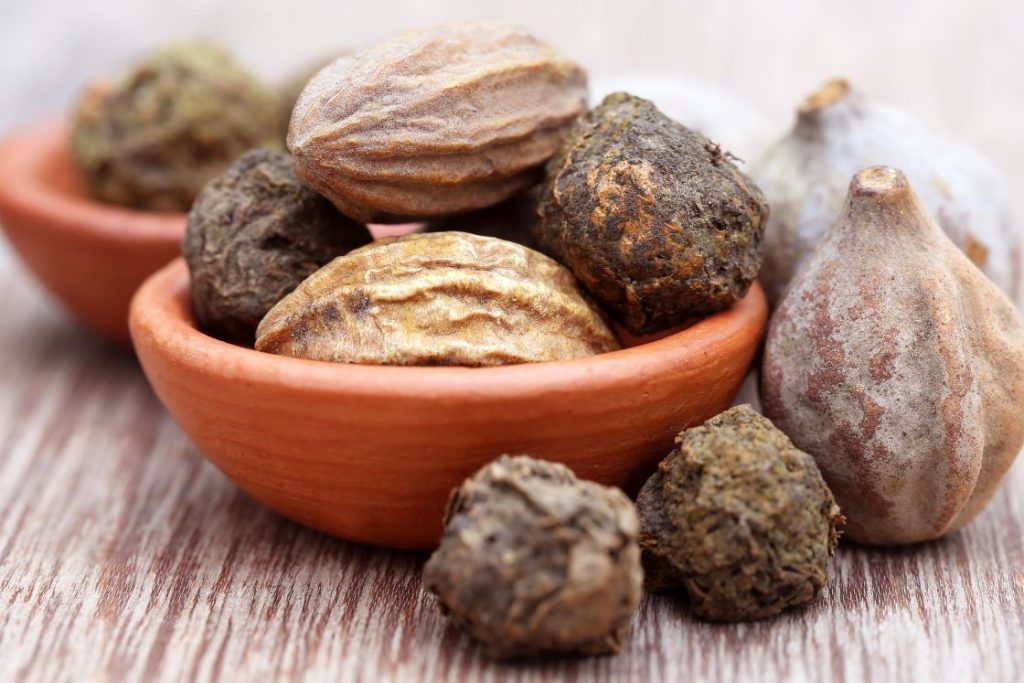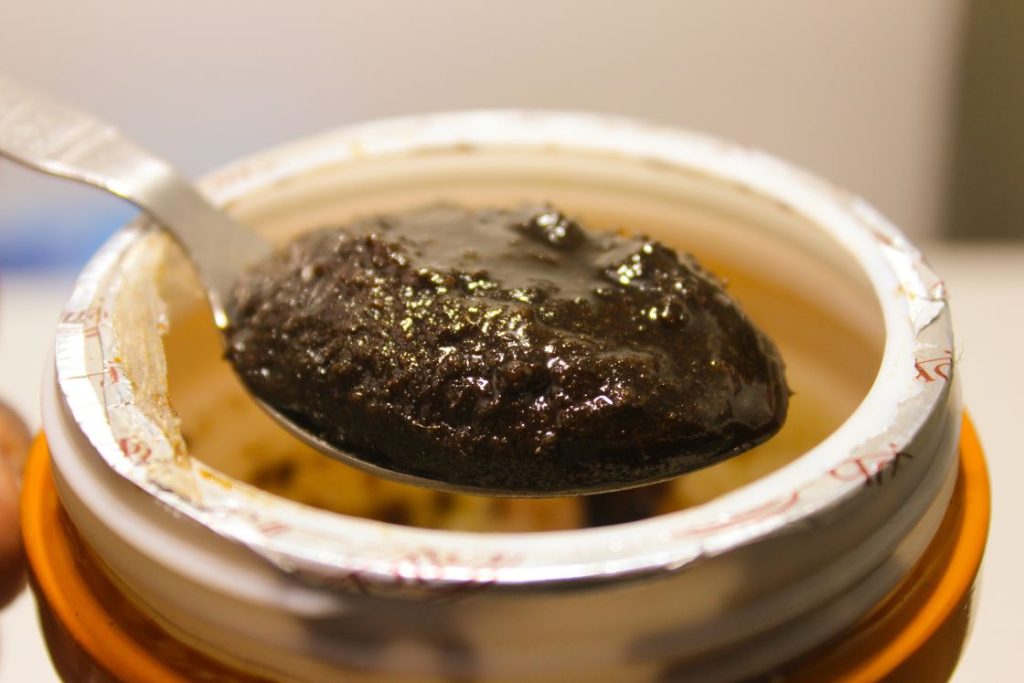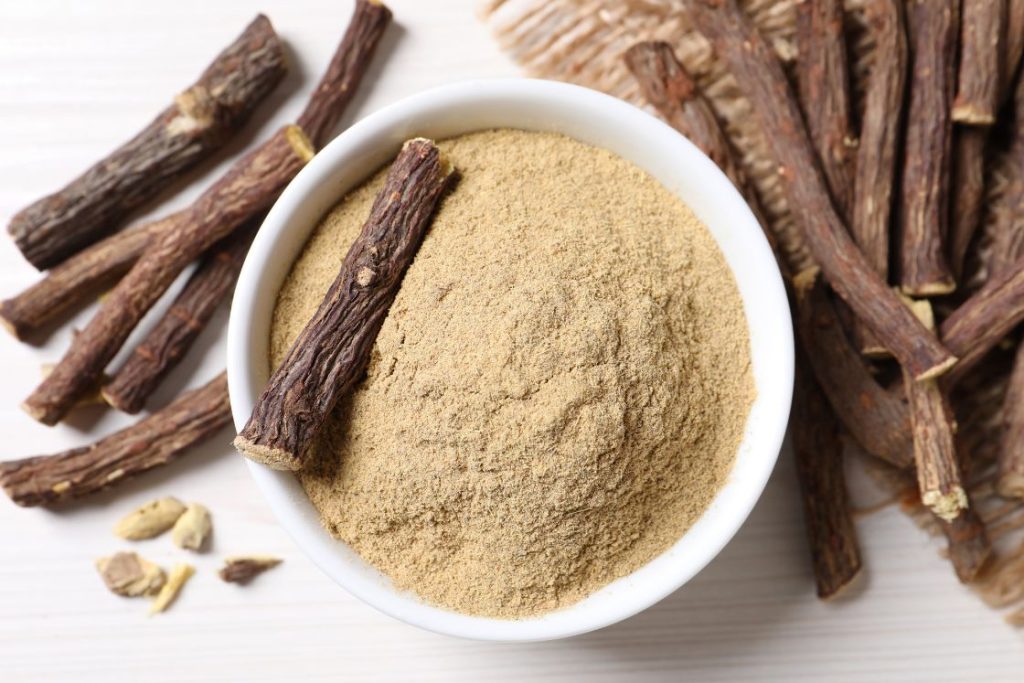
Because of the widespread health concerns associated with obesity and overweight, people are often anxious to lose weight. However, there is another group of people who are underweight or naturally thin, and they often struggle to find effective methods for healthy weight gain. While there are numerous proven weight loss methods, finding suitable weight gain solutions for this population is often difficult.
Fortunately, Ayurveda can assist anyone who needs a successful diet plan to gain weight in a healthier way.
In Ayurveda, ideal weight is more closely related to constitution than to a number on the scale. The optimal body weight of someone with a lighter constitution will inevitably be lower than that of someone with a denser constitution who is the same size.
Nevertheless, Ayurveda offers several effective methods for strengthening and replenishing the body that support a holistic approach to weight gain.
In this article, we have covered various methods, suggested by Ayurveda, which you can apply for weight gain. We have also discussed the relevance of Doshas in your journey to plan a weight gain regime.
Understanding Your Dosha and the Importance of Weight Gain
The three primary Doshas in Ayurveda— Kapha, Pitta and Vata — play a crucial role in identifying factors that contribute to weight imbalance.
Ayurveda believes that a person’s behavior, appearance and metabolic functions are influenced by the balance of the doshas vata, pitta and kapha in the body. Therefore, when treating a slim body, it is important to find the root cause.
From an Ayurvedic perspective, Vata is often the dominant Dosha in people with lower body weight and BMI. People with a Vata constitution, characterized by the air element, usually lose weight more quickly and effortlessly than people dominated by the Pitta (fire element) or Kapha (earth element) doshas. Because of their fast metabolism, it can be difficult for them to gain weight even with a healthy diet.
For those who want to gain weight, Ayurveda recommends a diet plan that is fatty, rich and stabilizing.
On the other hand, if you have a pitta or kapha dosha, your weight gain strategy may be correspondingly different. Therefore, it is crucial that you understand your body type and recognize any imbalances before embarking on a weight gain journey.
To Know Your Body: Join Our 5-Day Ayurveda Workshop
In the following section, we’ll outline some common herbs, foods, and Ayurvedic treatments that can facilitate a natural and healthy weight gain process.”
This version maintains the information while improving readability and flow.
Foods Recommended for Weight Gain Based on Dosha type

1. Vata Dosha (Air and Ether)
- Vata types tend to have fast metabolism and may struggle to gain weight.
- Opt for warm, nourishing, and grounding foods.
- Include whole grains like rice, oats, and quinoa in your diet.
- Consume healthy fats such as ghee, avocado, and nuts.
- Incorporate sweet, sour, and salty tastes in your meals.
- Enjoy cooked vegetables, soups, and stews.
- Drink warm herbal teas like ginger tea.
- Avoid excessive consumption of raw, cold, and dry foods.
2. Pitta Dosha (Fire and Water)
- Pitta types usually have a moderate metabolism and can gain weight with the wrong choices.
- Focus on cooling and hydrating foods.
- Include dairy products like milk, yogurt, and ghee.
- Opt for sweet, bitter, and astringent tastes.
- Eat sweet fruits like ripe mangoes and pears.
- Include whole grains like barley, wheat, and basmati rice.
- Limit spicy, hot, and fried foods.
- Avoid excessive consumption of red meat and alcohol.
3. Kapha Dosha (Earth and Water)
- Kapha types are more prone to weight gain and should focus on balancing their dosha.
- Choose warm, light, and slightly spicy foods.
- Consume lean proteins like chicken, turkey, and fish.
- Incorporate a variety of vegetables, especially leafy greens.
- Use pungent spices like ginger, black pepper, and mustard seeds.
- Include legumes like lentils and mung beans.
- Limit dairy, sweets, and heavy, oily foods.
- Engage in regular physical activity to stimulate metabolism.
Ayurvedic Herbs and Remedies for Weight Gain
In Ayurveda, healthy weight gain is about balancing your doshas and promoting a harmonious metabolism. Ayurvedic practitioners often recommend the use of certain herbs and remedies to aid in this process. Here are some common Ayurvedic herbs and remedies for weight gain:
Ashwagandha(Withania somnifera)

Ashwagandha is a potent Rasayana (rejuvenating herb) known for its profound nourishing effects on the body. It not only increases the body’s metabolism, but also strengthens the immune system and promotes overall vitality. In addition, it helps to improve the body’s resistance to stress, maintain vital energy during the day, and promote restful sleep at night.
Ashwagandha is also known for its potential to support healthy weight gain by naturally increasing body mass. Ashwagandha is available in several forms, including pills, liquid extracts, and powders. If you opt for the powder form, you should mix it with milk to make a very nutritious Ayurvedic tonic.
Triphala

Triphala churna, often referred to as the combination of three medicinal fruits, is known for its detoxifying effect on the digestive tract, making it an excellent digestive system booster. This Ayurvedic formulation also excels in nourishing, rejuvenating, and replenishing the body’s tissues. It plays a vital role in supporting overall vigor, maintaining a healthy agni (digestive fire), and facilitating the removal of toxins from the body.
Triphala is available in various forms, including powder, drops, and tablets.
For tablets, it is recommended to take 2 tablets half an hour before bedtime with warm water. If using the powder form, steep 1 and ½ teaspoons of Triphala in 1 cup of freshly boiled water for ten minutes, then consume the mixture once it has cooled to a comfortable temperature.
Alternatively, you can dilute 30 drops of liquid Triphala extract in warm water and consume it before bedtime.
Chyawanprash: A Weight-Boosting Herbal Jam

Chyawanprash is a widely used herbal jam known for its ability to promote weight gain. Its harmonious blend of ingredients serves to rejuvenate the body, stimulate digestion and ward off the physical effects of stress. It also plays an important role in improving overall digestive health.
To enhance your well-being, vitality, and strength, it is recommended to consume one or two tablespoons of Chyawanprash daily.
Shatavari: A Potent Herb for Women’s Health and Weight Gain

Shatavari is a powerful herb known for its exceptional benefits, especially for women. It plays a key role in hormone regulation, digestion improvement, immunity enhancement, stress and anxiety prevention, and aiding in healthy weight gain among women. Additionally, its cooling and grounding properties make it suitable for men as well.
Shatavari can be incorporated into your daily routines in various forms, including powder, juice, or tablets.
For the powder form, mix ½ teaspoon with milk or honey and take it twice a day, preferably after lunch and dinner. Shatavari juice can be prepared by mixing 3-4 teaspoons with an equal amount of water and consuming it on an empty stomach every morning.
Yashtimadhu: A Key Player in Weight Gain

Yashtimadhu, also known as Mulethi or Licorice, plays a vital role in the journey of healthy weight gain. Yashtimadhu root churna is a versatile herb that provides a wide range of benefits, including fortifying the immune system, improving overall vitality and well-being, and boosting strength.
Incorporating this herb into your routine can help compensate for any deficiencies in vitamins and minerals in your daily diet. This, in turn, can promote healthy weight gain and muscle development.
Ayurvedic Treatments to Help Weight Gain
Ayurvedic treatments, which usually include massages, are used to eliminate toxins and promote relaxation. These treatments play a crucial role in easing the process of weight gain. When you are in a relaxed state and your organs are cleansed, they can work more efficiently and absorb the important nutrients.
Here are some Ayurvedic treatments you can consider undergoing:
Panchakarma

Panchakarma is the cornerstone of many Ayurvedic treatments, primarily based on a healing process that employs medicinal oils to cleanse the body of toxins.
The term “Panchakarma” is derived from the five-step process aimed at cleansing both the body and the mind. The primary objectives of this procedure are to enhance immunity and restore balance to the body’s doshas, promoting a healthy lifestyle.
The Panchakarma approach encompasses five detoxification methods:
- Vamana (Therapeutic Vomiting) for Kapha Dosha: Individuals with Kapha doshas must undergo Vamana. This involves the intake of specific medications designed to accumulate toxins in the upper region of the body over a specified period. Once the doctor determines that the cleansing process is satisfactory, toxins are eliminated using a herbal infusion.
- Veerechana (Purgation) for Pitta Dosha: Those with Pitta doshas should undergo Veerechana. Patients consume medications that accumulate toxins in the lower body for a designated period. Toxin removal occurs through bowel clearance once the doctor deems that the cleansing process has progressed sufficiently.
- Basti (Herbalized Oil Enemas) for Vata Dosha: Basti is recommended for individuals with Vata doshas, aiding in a thorough cleansing of the colon. Herbal decoctions are injected into the rectum to facilitate rapid absorption and elimination of toxins.
- Nasya for Hormone Regulation: Nasya involves the administration of drugs through the nasal cavity, targeting the detoxification of the upper respiratory tract and aiding in hormone regulation.
- Raktamokshan for Blood Purification: To prevent diseases such as tumors, herpes, ulcers, skin conditions, and bad odors, the procedure of raktamokshan is employed. It purges impurities from the blood, promoting overall well-being.
These Panchakarma methods, tailored to specific doshas and individual needs, help promote holistic health and well-being in the practice of Ayurveda.
Abhyanga

Abhyanga refers to the application of oil to the limbs of the body with the aim of supporting detoxification and purification before the actual treatment. It is also used to correct imbalances of the Doshas Vata, Pitta and Kapha.
In addition, it helps relieve stress, sleep problems and promotes healthy functioning of the respiratory, digestive and excretory organs. Abhyanga facilitates detoxification and purification by massaging the lymph nodes and improving blood circulation.
An Ayurvedic practitioner uses heated oil mixed with herbs or other oils for this purpose. Before preparing this mixture, a person’s Prakruti and Vikriti are carefully recorded. Then, all limbs, from toes to scalp, are subjected to a thorough massage after the therapeutic oil is applied in short strokes to the entire body
Shirodhara

Shirodhara is an Ayurvedic therapy in which medicinal fluids such as oils, milk, ghee, and buttermilk are slowly streamed onto the forehead of a person lying on a table. This treatment targets the sense organs and the forehead, which have the highest concentration of nerves. The medicinal properties of the liquid reach the nervous system through the forehead and scalp.
Shirodhara is very effective in relieving stress, anxiety, and worry while stimulating the nervous system. It is especially beneficial for addressing Vata issues.
All liquids are briefly warmed, and the choice of liquid is influenced by your specific dosha vitiation:
- For individuals with a Vata condition or predominance, warm liquid and sesame oil are typically used.
- When treating a Pitta condition, ghee is often employed, and the liquid is kept cool.
Relaxing of the entire neurological system improve overall functioning, improving metabolism and the flow of prana through the energy channels.
Lifestyle Changes for Weight Gain
While Ayurvedic herbs and dietary choices play a significant role in achieving your goals, incorporating some lifestyle changes can greatly complement your efforts and promote a healthy lifestyle.
Here are some tips you can follow:
Cultivate Good Eating Habits
To support your weight gain journey, it’s essential to cultivate healthy eating habits. Here are some tips to consider:
- Regular Meals: Avoid skipping meals and aim to eat at least four or five times a day, if possible. Each meal should consist of a healthy portion of food. As your digestion improves and you start gaining weight, you can gradually reduce your meal frequency to three times a day.
- Fresh and Warm Food: Consume your meals as soon as they are prepared and still warm. Avoid reheating foods, as they may become less beneficial and potentially more toxic for your body when compared to freshly warmed food.
- Heavier Foods: For weight gain, Ayurveda recommends starting your meals with the heaviest and sweetest foods and progressing to proteins, fats, and vegetables. This sequence can help you achieve your weight goals effectively.
- Mindful Eating: Eat slowly and chew your food thoroughly. This practice not only aids in stimulating your salivary glands but also enhances the digestion process. Eating mindfully can help you feel calmer and promote overall health.
By incorporating these healthy eating habits into your lifestyle, you can support your weight gain efforts and work towards a balanced and nourishing diet.
Stay Away From Stimulants
Energy can be derived from substances such as caffeine, cigarettes, energy drinks, and dark chocolate, but they do not promote weight gain. These stimulants increase daytime digestion and suppress metabolic hormones at night, leading to a depletion of melatonin and disruption of the body’s natural circadian cycle.
Therefore, it is advisable to steer clear of such stimulants in order to enjoy a restful sleep.
Incorporate Exercise for Weight Gain
Exercise can improve digestion and circulation, facilitating weight gain. Incorporating weight training exercises can be particularly beneficial for weight gain because they stimulate natural detoxification, increase appetite, and regulate metabolism.
Consider a vata-soothing exercise programme that integrates grounding activities such as tai chi, yoga, leisurely walks, gentle hikes or relaxed cycling to enhance your physical development.
If you are a dedicated athlete, temporarily reduce your exercise intensity and closely monitor your body’s responses. If you are not yet exercising regularly, it is a good idea to start with three days per week.
Reduce Stress
Chronic stress can increase cortisol levels, which negatively affects appetite and digestive functions. It can also lead to overeating, an unhealthy form of weight gain that further stresses the digestive system.
If maintaining a healthy weight is challenging due to stress, anxiety, or other mental and emotional factors, incorporate practices like meditation, yoga, and pranayama into your routine. These techniques not only support your physical well-being, but also promote mindfulness of your body.
Incorporating these practices into your daily routine can greatly benefit your normal lifestyle
Restful Sleep
Sleep is not only crucial for overall health but especially for muscle building, a key aspect of weight gain. The substantial and stabilizing nature of sleep helps balance the excess energy and lightness often associated with unwanted weight loss.
To support your weight gain goals, aim for at least 8 hours of sleep each night. This healthy practice not only contributes to weight gain but also promotes overall well-being and longevity, and reduce the risk of illness.
If you have trouble falling asleep, consider drinking a glass of warm milk with a pinch of turmeric powder. This not only facilitates quicker sleep but also enhances your immune system.
In addition, maintaining a consistent sleep schedule can be beneficial for your overall health and weight gain efforts.
Conclusion
In Summary, achieving healthy weight gain through Ayurveda is a holistic and sustainable approach that considers the individual’s unique constitution and focuses on balancing body and mind. By following Ayurvedic dietary recommendations tailored to your Dosha, adopting a balanced and nourishing diet, and incorporating lifestyle changes such as stress reduction, regular exercise, and restful sleep, you can work toward your weight gain goal in a healthy and mindful way.




